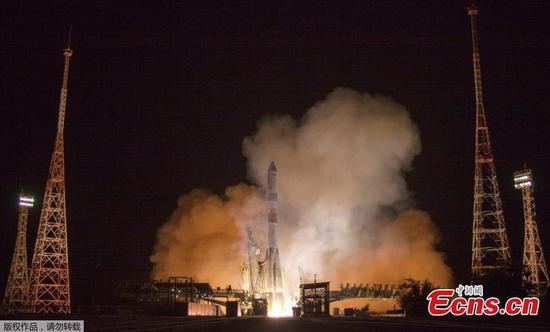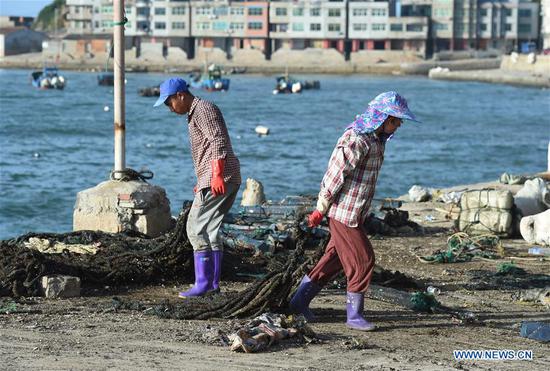China vows to retaliate against 'hegemony and bullying' tactics
China denounced the United States' latest threat to impose tariffs on an extra $200 billion worth of Chinese imports as "totally unacceptable" trade hegemony and bullying, and vowed on Wednesday to fight back to protect its "core interests".
It is totally unacceptable for the U.S. to publish a tariff list in a way that escalates tensions, the Ministry of Commerce said in a statement.
"To defend the core interests of the nation and its people, the Chinese government will, as always, be forced to impose necessary countermeasures," it said.
The ministry gave no details of possible retaliation, but Beijing earlier promised both "qualitative and quantitative" comprehensive countermeasures. It also said it will add a new suit against the U.S. before the WTO regarding the newly proposed tariffs.
Also on Wednesday, Foreign Ministry spokeswoman Hua Chunying described the U.S.' latest move as "trade hegemony and bullying", saying China will have to respond to firmly safeguard its legitimate interests.
China stands on the right side of history in defending multilateralism, Hua added.
Their remarks came after the Office of the U.S. Trade Representative announced on Tuesday a $200 billion list of Chinese goods for possible 10 percent tariffs.
The items ranged from electronic components to cat food. The U.S. claimed the tariffs were in response to Beijing's "failure" to change its policies and in retaliation for last week's U.S. tariff hike by increasing duties on U.S. goods.
The spiraling conflict has prompted warnings it might chill global economic growth.
Li Chenggang, assistant commerce minister, said additional tariffs will put tremendous pressure on global companies and consumers.
He said China will not change its long-term commitment to improving the domestic business environment, opposing unilateral measures and supporting the multilateral trading system.
The latest list of $200 billion in products to be subject to tariffs against China doubles down on a reckless strategy that will boomerang and harm U.S. families and workers, according to David French, senior vice-president for government relations of the National Retail Federation in the U.S..
"Tariffs on such a broad scope of products make it inconceivable that American consumers will dodge this tax increase as prices of everyday products will be forced to rise," French said in a statement.
The U.S. is seeking public opinion regarding the latest proposed modification of tariffs on Chinese goods. The public comment period ends on Aug 30.
Uncertainties may still exist about whether the whole list will finally take effect and what kinds of goods will be targeted, said Ma Jun, a member of the People's Bank of China's monetary policy committee.
China is busy studying the impact of an escalating trade war on affected companies and industries, and might consider adopting new measures to minimize negative impacts, according to Ma.
More global experts on trade are expressing serious concerns on the latest protectionist tariffs introduced by the U.S. against China, the European Union, Mexico and Canada.
Such tariffs, they say, severely affect the global supply chain and put an extra burden on multinationals, including U.S. companies sourcing components from the rest of the world.
"With regret from many (countries) around the world, the U.S. has departed from the principle of free trade and has embarked on a full-blown trade war," said Christopher Bovis, a professor of international business law at the University of Hull in England.
"The U.S. actions threaten to unseat global supply chain arrangements and destroy existing trade partnerships that have promoted economic growth and employment in many parts of the world."
Hans Uszkoreit, an academician with the European Academy of Sciences, said against the backdrop of China-U.S. trade tensions, economic, scientific and technological cooperation between China and the European Union are expected to be put on a fast track.
Uszkoreit expected that the trade spat can, to some extent, "bring China (and the) EU closer", as the two already share long historical links and manufacturing connections.
On July 6, U.S. tariffs on $34 billion of Chinese goods, including medical devices and airplane parts, took effect.
Douglas Morton, head of Asia research at Northern Trust Capital Markets, contended that the tariffs, which also impact exchange rates, will create challenges for multinationals that take out loans in one market to pay for their expansion in another.
Airlines and property companies are also especially vulnerable to exchange rate fluctuations, Morton added.


















































